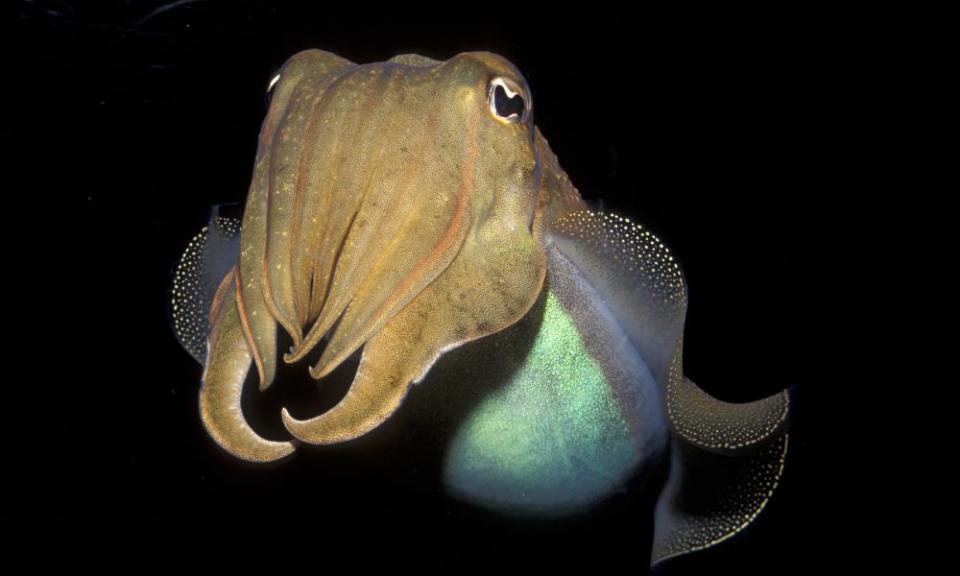There will never be a cuttlefish in the cabinet – and that makes me sad

Back in the gentler days of the internet, before it was just bots and people shouting at tea, I had a blog, and through it, occasional exchanges with a woman I described as my “cephalopod correspondent”. She would write, sharing interesting titbits about squid behaviour, cuttlefish news and, once, a picture of “an Octopus cyanea on a penny”.
I think of her often now, as every week it seems we learn something spectacular about the tentacular. Octopuses are competent and creative problem-solvers, can master mazes, and frequently escape from captivity. They can even predict the outcome of football matches (OK, possibly not, but octopus Paul’s strike rate was impressive). Our collective fascination only deepened with last year’s Netflix documentary My Octopus Teacher, a lovely exploration of the curiosity and resourcefulness of one uncommonly touching common octopus. Perhaps even better was the relatable recent revelation that octopuses sometimes punch their fish co-workers when on joint hunting missions: it has certainly deepened my respect for them.
Now the spotlight is on cuttlefish: last week brought the news that they can exert self-control and pass a version of the notorious marshmallow test. In a study by a team of Cambridge behavioural ecologists, cuttlefish opted for deferred gratification, choosing to wait up to 130 seconds for enticing live grass shrimp rather than settling for the reportedly less appealing piece of raw prawn on offer instantly.
I am always on the lookout for a new and less awful dominant species to take over, and cephalopods seem so promising: clever and able to resist acting on impulse? Is there a single member of the cabinet of whom we could say the same? Sadly, it seems I should not be pinning my hopes on cephalopods because they are so short-lived: it is both a real shame and an evolutionary puzzle. The juvenile zebrafish, who a researcher recently discovered get stimulated listening to MC Hammer’s U Can’t Touch This, are, I fear, the future overlords we probably deserve.
• Emma Beddington is a Guardian columnist

 Yahoo Movies
Yahoo Movies 